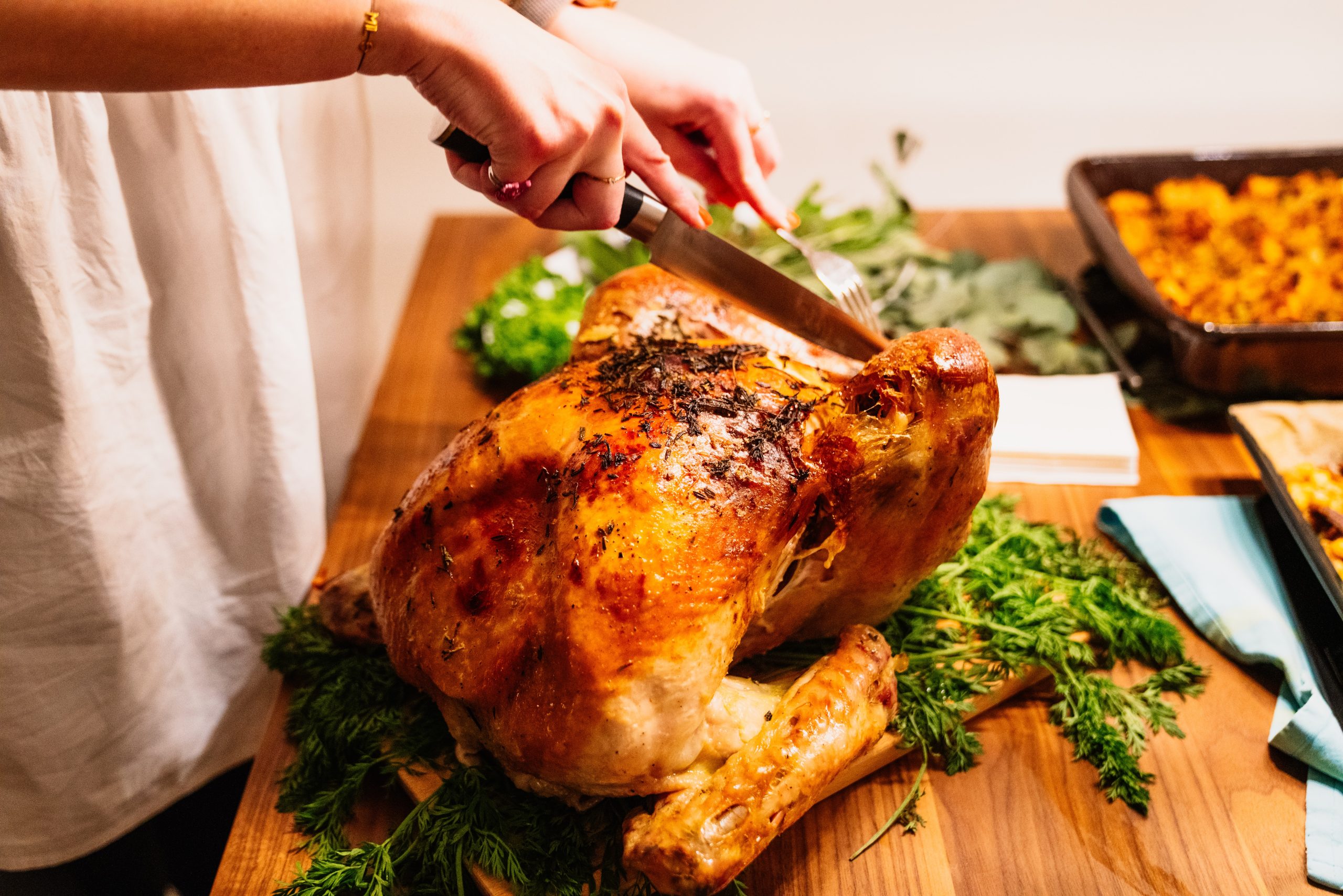We may tell ourselves that we’re not going to spend too much this Christmas, but by the time the lights start sparkling on the streets, and our friends start posting on Facebook about trips to Santa’s Grotto and what they’ve bought their kids, it is really hard not to get sucked in.
December is the worst month for going into debt, with 7.9 million Britons falling behind in their finances due to Christmas in 2018. Credit cards often lure us in with low interest deals, only for us to see interest rates skyrocket because we didn’t read the fine print.
It is shockingly easy to find yourself in a mountain of debt that you can’t pay off, having to resort to an Individual Voluntary Arrangement (IVA) to protect you from bankruptcy. While IVAs are helpful if you’re deep in debt, they affect your credit score and, obviously, it is better to avoid debt in the first place.
So how can you make sure that your Christmas spending this year doesn’t get you an IVA or worse, court action and bankruptcy? In this article, we’ll cover how exactly to avoid debt and the pressure to spend over the Christmas period
How can you make sure your Christmas spending doesn’t get you an IVA?
You can make sure your Christmas spending doesn’t get you an IVA, by refusing to take out loans or use credit to pay for Christmas, and starting to budget and save for Christmas from January.
If you are already in debt, you should try to pay this off as quickly as you can and consider consolidating your debt on a 0% interest balance transfer card.
Beware of ‘buy now, pay later’ deals
‘Buy now, pay later’ deals are booming, and they are a dangerous and unregulated industry. ‘Buy now, pay later’ (BNPL) providers such as Klarna, Clearpay and Laybuy tempt customers into spreading the cost of something over a few weeks.
BNPLs are tempting because of their promises of interest and free-fee borrowing.However, unlike a 0% credit card, you will have to repay the balance within six weeks or less, or risk accruing late fines that could increase to much more than you originally paid for the product. As BNPLs don’t do any credit checks, it is up to you to decide whether you can afford what you’re borrowing, and could put you at great risk if you are wrong in your calculations.
‘Buy now, pay later’ schemes are unregulated by the Financial Conduct Authority (FCA), which means they don’t have to warn you about what happens if you don’t pay, or do any checks to see if you can afford repayments. This makes BNPLs an easy route into unaffordable debt. You can’t take any complaints to the Financial Ombudsman, which leaves you at risk. Making late payments through a BNPL could negatively affect your credit score, and your ability to buy a house or other important assets in the future.
If you’re already in debt
If you’re already struggling with debt, don’t worry, you’re not the only one. The best thing to do to protect your credit score and avoid an IVA is to pay off your debt as soon as you can. According to Money Advice Service if you borrow £2,000 on a 19% APR and only pay the minimum payment every month, it will take you 24 years and 2 months to repay it and you’ll pay back £4,731 in total. The total interest you would have to repay will be a £2,731, more than double what you borrowed.
You could consider consolidating any debts into a 0% or low interest balance transfer card. This means that more money will go towards paying the debt off rather than on paying interest, allowing you to clear the debt faster. Whatever happens, always make paying off your debt a priority.
Start budgeting for Christmas in January
When is the best time to start saving for Christmas? You might think: October or November, but it is actually January. Yes, I know, you’ve just got the decorations down from last Christmas, and everyone is feeling a bit low and the last thing you want to think about is budgeting. But starting to think about Christmas costs as early as January, is a great opportunity to structure your saving and spending for the year, and protect yourself from getting into a debt spiral. When it comes to next December, and you draw out the Christmas money that you’ve saved yourself, you will feel truly amazing. Putting away money each month helps you during the year too, as you’ll feel more balanced and in control.
Three Accounts Budgeting System
A great way to budget and gain the security of knowing exactly where your money is going, is through the ‘three accounts budgeting system’. This budgeting system helps people in debt to make their repayments as well as save money, and protects people from going into debt in the first place. Designed by Christians Against Poverty, the system encourages you to have three accounts: a direct debit account, a weekly spending account and a savings account. Each month that you get paid either your salary or benefits, you divide your money according to your budget. Money that comes out automatically (for example, your rent, car insurance and bills) goes into the direct debit account. Any money that you want to save (including for Christmas) goes into the savings account. What you have left over, is your weekly spending money. It is important to save a little extra each month for emergencies or unexpected payments.
Buy discounted gifts or cards in January
Another good way to save money for Christmas from January, is to buy gifts and cards in the January sales. A lot of Christmas-related items will be going for half-price as shops just want to shift them. Of course, you should never feel pressured to buy gifts or cards if you can’t afford them, even if they are half-price. You and your family’s financial well-being is so much more important. Christmas is still Christmas without all the extra trimmings we think are so necessary, and a loving text or a note slipped through the door will be just as meaningful as a gift you’ve bought.
Give yourself a debt-free January for Christmas
The best present you can give yourself for Christmas is a debt-free January. That might not sound like so much fun in December, when Christmas decorations are gleaming from every window and everyone around us is splurging on gifts and food, but if it guarantees a peaceful January, it is worth it. You’ll spend the new year enjoying a fresh start, rather than worrying about debt collectors or paying the bills.
Have the Christmas that is right for you
It doesn’t matter what everyone else is doing (or says they are doing). Your priority is protecting the finances of yourself and your family, and it is entirely possible to enjoy Christmas on your budget, whatever it is. Every time someone posts about a horse-drawn carriage ride with Santa and you get a surge of panic and think, ‘maybe I should do that’, remind yourself that all you have to stick to is your budget, and let the worry go.
Make a plan for how much you’re going to spend early on, and stick to it
In 2017, the average person borrowed £452 to cover the cost of Christmas – that is £8.5 billion on credit cards for the whole of the UK. It’s very hard to avoid spending a little more at Christmas, but you can definitely avoid debt. As well as saving a little for Christmas each month, you should also make a budget for what you’re going to spend in December and stick to it. Think of every possible cost – presents, food, decoration and trips out – and allocate a number for it. Then, look at the list and see which parts you can save on with discounts, for example, or even do without.

Saving on Christmas expenses
Some great ideas for saving on Christmas expenses include:
- Swapping decorations and ornaments with friends or family, rather than buying new ones.
- Skipping the cards, and sending free e-cards or meaningful texts and letters instead.
- If you are having family over for Christmas, asking each one of them to bring a dish or contribute to the cost of the meal
- Arranging Secret Santa, so that everyone only buys one gift each. Many online shops such as Etsy have a list of high-quality gifts for £5 or less, and you don’t even need to spend this much. You could bake them a cupcake, write them a letter or poem, or knit or draw something if you enjoy craft.
- Paying with cash or limiting what’s in your bank account for each spend. Once you’ve set a budget for Christmas, make sure you take out the exact amount of cash for each thing when you’re shopping for it. This will ensure you won’t spend more than you have, as once it’s gone, it’s gone. If you’re worried about using cash due to Covid-19, you could move money temporarily to your savings account, leaving only what you need for a specific purchase in your current account, as long as you don’t risk going into an overdraft. Some supermarkets offer ‘scan as you shop’, which is a good way for keeping your shop within budget.
Watch out for the early December payday
The early December payday often trips us up in our attempts to stay debt free over Christmas. Many companies will pay their employees early, because of the high number of bank holidays in December and to ensure that staff are paid in time for Christmas. If you are on Universal Credit, you may be paid twice in one assessment period. This means that it is often six weeks or more, rather than four, before you will be paid anything again, and you must be extra careful to budget for January, as well as December.
Plan for extra costs over Christmas
Christmas almost always ends up costing more. Even without all the extra Christmas trimmings, such as presents and food, we may end up spending more on electricity, especially during Covid-19 restrictions, when there are more of us at home.
Cut down your household bills
Some people in the UK are being overcharged by as much as £360 a year by their energy suppliers, by being stuck on expensive Standard Variable Tariffs (SRVs). Switching your energy company is simple, and comparison sites like MoneySuperMarket or Energyhelpline can help you see what cheaper deals are available. Saving up to £360 on energy bills over Christmas will help hugely when it comes to January.
Cut down on your food spend
If you’re having a traditional Christmas dinner, you’ll inevitably end up spending more than usual. For many of us, meat is a luxury, and Christmas may be one of the few times we want to enjoy it. The good news is, you can use supermarket price comparison tools and websites, for example, Which.co.uk, to work out the cheapest place to buy food for your Christmas lunch.

Why an IVA can be a good thing, if you’re already deep in debt
Although it is a good idea to avoid debt in the first place, the truth is that many of are struggling with debt at the moment. It has been a harder year than usual for finances, and 1 in 8 Brits has been pushed into further debt due to Covid-19.
If you are deep in debt, an Individual Involuntary Arrangement, is one of the ways you can deal with your debt for good, and see some or all of it written off. If you are in an IVA, we put together a list of things you can do to protect your IVA repayments over Christmas, and even save for Christmas or other things during the year.
How to protect your IVA payments over Christmas
If you have money especially put aside for Christmas, you will be able to enjoy Christmas while making your IVA payments on time, and protecting yourself from further debt.
Saving for Christmas during an IVA
There is nothing to stop you saving money during an IVA, for Christmas or anything else, and in fact, it is a great way to improve your finances for the future, while clearing your debt through your IVA. As long as the money you save is out of your living expenses allowance each month, you won’t have to put this money towards your IVA repayments.
Your living expenses allowance is the amount that you and your Insolvency Practitioner (IP) agree that you need for day-to-day living, including your mortgage or rent, utility bills, food, shopping and transport. While you might think it is better to put any extra savings towards your IVA, the truth is that this will probably just increase your IVA payments.
It is a good idea to have a second basic bank account, with a bank that you don’t owe money to and with no overdraft, for savings and costs you don’t need to cover every month, such as birthdays, Christmas, or yearly tax bills such as road tax.
If you can’t afford a Christmas gift for your child
Struggling with debt can be a really painful and isolating experience. Many people will be in the position of being unable to spare anything at all for Christmas. If you can’t afford a Christmas gift for your child, you’re not alone. There are many charities that will help you with Christmas gifts for your child, including Stripey Stork and the Salvation Army.
We’ve now covered several ways that you can make sure your Christmas spending doesn’t get you an IVA, and we hope you’ve found it an illuminating read. Debt destroys lives, but there are many ways you can enjoy Christmas in a way which honours your budget and your dreams of a debt-free and financially secure future.



 Bitcoin
Bitcoin  Ethereum
Ethereum  Tether
Tether  XRP
XRP  Solana
Solana  USDC
USDC  TRON
TRON  Lido Staked Ether
Lido Staked Ether  Cardano
Cardano  Avalanche
Avalanche  Toncoin
Toncoin